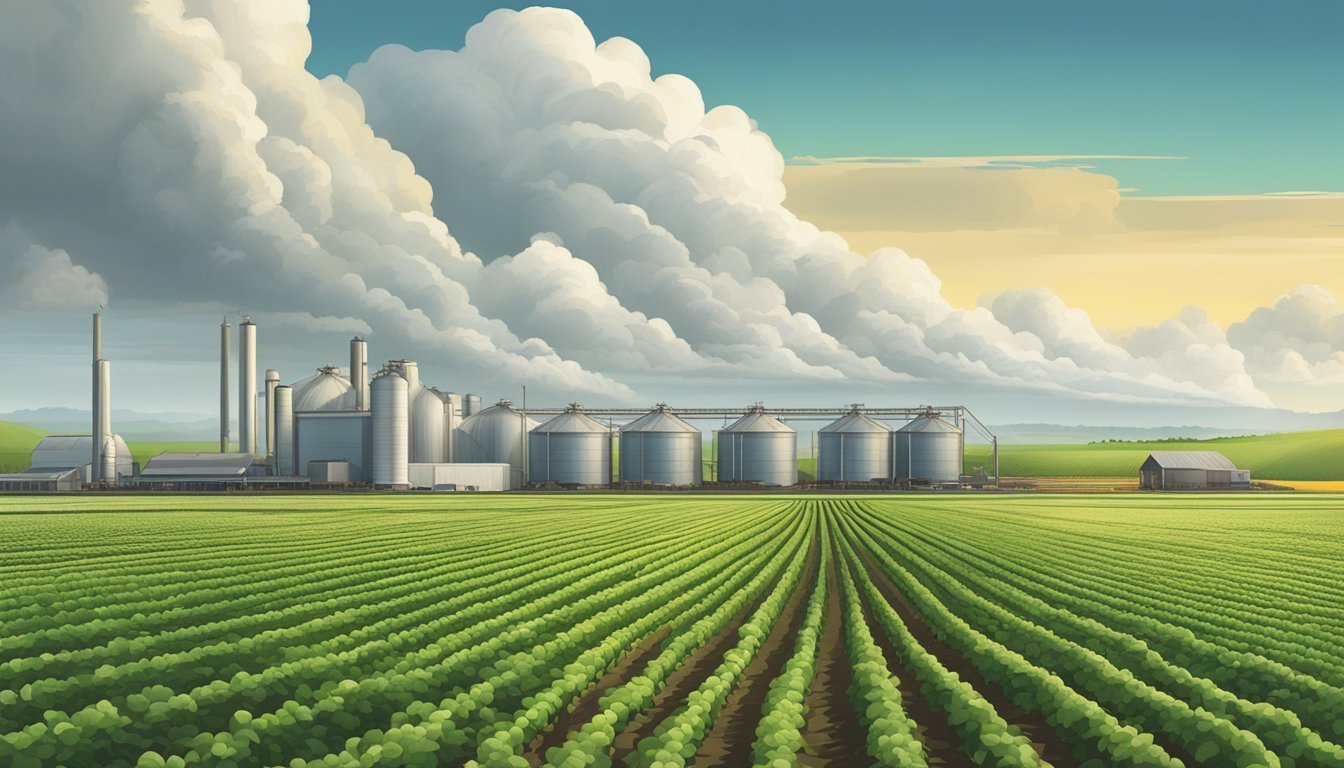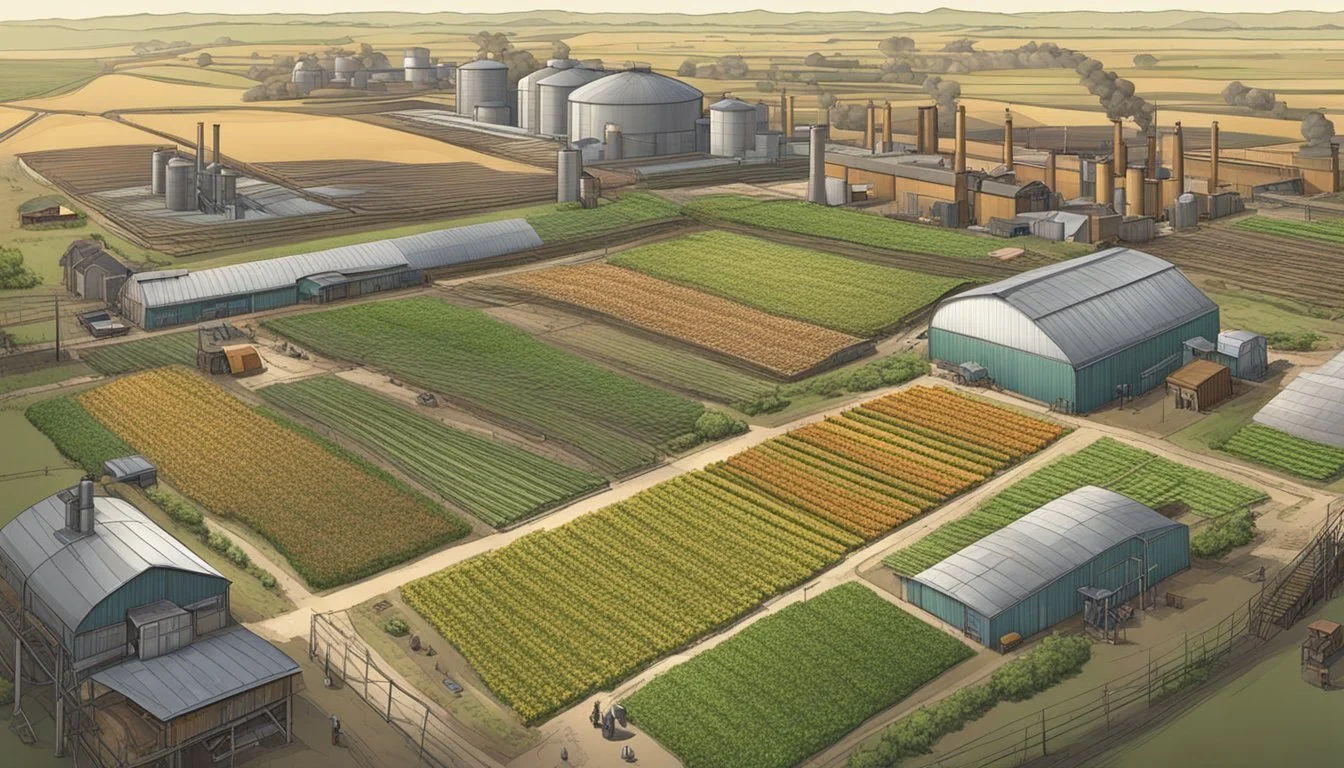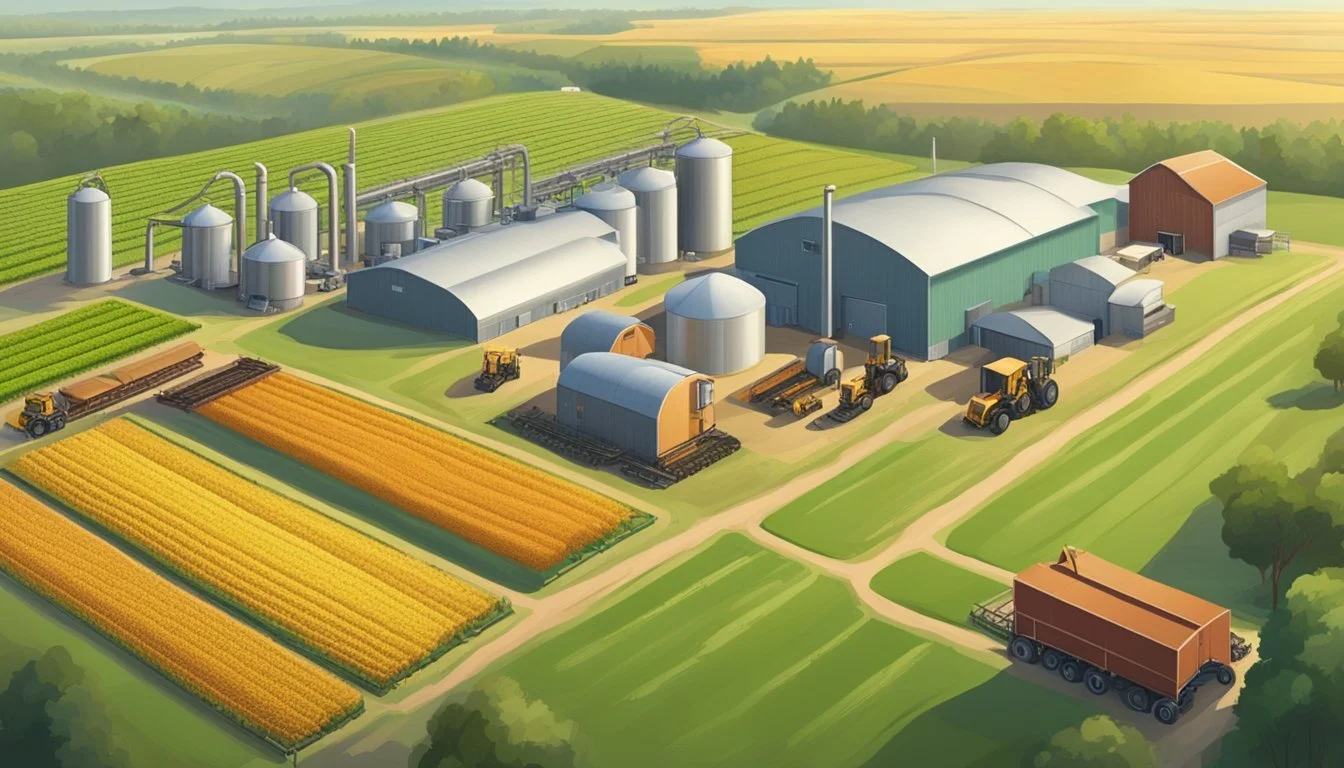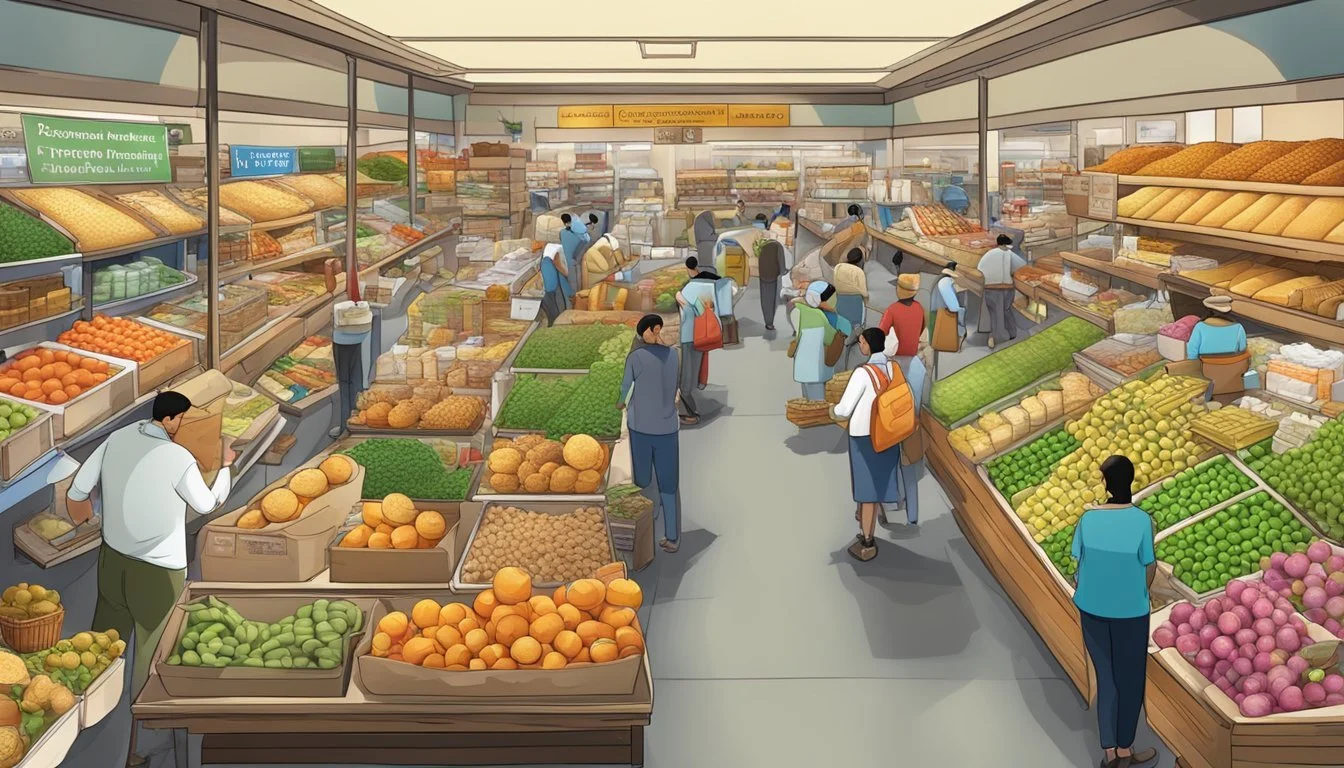Food, Inc.: The Shocking Truth Behind America's Food Industry Exposed!
Food, Inc. is a groundbreaking documentary released in 2009 that exposes the hidden realities of America's food industry. Directed by Robert Kenner and narrated by Michael Pollan and Eric Schlosser, this film takes viewers on a revealing journey through the complex web of corporate farming in the United States.
The documentary uncovers uncomfortable truths about food production, showing how agribusiness practices often prioritize profits over health, environmental sustainability, and ethical treatment of animals and workers. Food, Inc. explores the stark contrast between the idyllic farm imagery often used in marketing and the industrial-scale operations that dominate modern food production.
Through interviews with farmers, industry insiders, and food safety advocates, the film paints a comprehensive picture of the challenges facing the American food system. It raises important questions about the long-term consequences of current agricultural practices and encourages viewers to think critically about the origins of their food.
Overview of 'Food, Inc.'
'Food, Inc.' is a groundbreaking documentary that exposes the inner workings of America's industrialized food system. The film sheds light on corporate farming practices and their impact on health, environment, and workers' rights.
Film's Approach and Aims
'Food, Inc.' takes a critical look at large-scale food production in the United States. Directed by Robert Kenner and released in 2008, the documentary aims to educate viewers about the hidden costs of industrialized food production.
The film features interviews with farmers, industry insiders, and food safety advocates. It explores topics such as the prevalence of corn in processed foods, the treatment of animals in factory farms, and the consolidation of food production among a few powerful companies.
'Food, Inc.' also examines the environmental impact of current farming practices and their effects on public health. The documentary strives to empower consumers by revealing the truth behind food labels and marketing tactics.
Cinematic Style and Narrative
'Food, Inc.' employs a mix of interviews, archival footage, and original cinematography to tell its story. The film's visual style combines stark imagery of industrial food production with more intimate portraits of farmers and consumers.
Narrated by Michael Pollan and Eric Schlosser, the documentary presents a clear and compelling narrative. It uses graphics and animations to explain complex concepts in accessible ways.
The film's structure is organized around key themes in food production, moving from farms to supermarkets. This approach helps viewers understand the interconnected nature of the food system.
'Food, Inc.' received critical acclaim and was nominated for Best Documentary Feature at the Academy Awards. It also won the Gotham Independent Film Award for Best Documentary.
Examination of Industrial Agriculture
Food, Inc. scrutinizes modern industrial agriculture practices in the United States. The documentary explores how large-scale farming operations impact food production, animal welfare, and the environment.
Poultry and Meat Production
The film reveals concerning practices in poultry and meat production. Chickens are bred to grow larger and faster, often resulting in health issues. Many cannot support their own weight and struggle to walk.
Pork and beef production face similar challenges. Livestock are frequently confined in cramped spaces, limiting their movement and natural behaviors. Antibiotics are routinely administered to prevent disease outbreaks in these crowded conditions.
Industrial meat processing facilities prioritize efficiency over worker safety and animal welfare. The documentary highlights the rapid pace of production lines and the potential for contamination.
Grains and Vegetables
Corn dominates industrial agriculture, appearing in numerous food products and livestock feed. The film examines how government subsidies influence corn production and its widespread use.
Large-scale vegetable farming relies heavily on pesticides and genetically modified crops. This approach aims to increase yields and reduce losses from pests and diseases.
Monoculture practices, where single crops are grown over vast areas, are common. While efficient, this method can deplete soil nutrients and increase vulnerability to pests.
Agricultural Environmental Impact
Industrial agriculture significantly affects the environment. Chemical fertilizers and pesticides can contaminate water sources and harm wildlife.
Livestock operations generate substantial amounts of waste, posing challenges for proper disposal and management. Runoff from these facilities can pollute nearby water bodies.
The documentary also addresses the carbon footprint of industrial farming. Transportation of products across long distances and energy-intensive production methods contribute to greenhouse gas emissions.
Soil erosion and degradation are additional concerns, as intensive farming practices can deplete topsoil faster than it can be replenished naturally.
Food Quality and Public Health Concerns
The industrialization of food production has raised serious questions about food quality and its impact on public health. Concerns range from foodborne illnesses to chronic diseases linked to dietary patterns.
Link Between Food Industry and Health Issues
Mass production techniques in the food industry have led to an increase in unhealthy food options. These processed foods often contain high levels of sugar, salt, and unhealthy fats. Such dietary choices contribute to rising rates of obesity and diabetes in the population.
E. coli outbreaks have been linked to large-scale meat production facilities. These incidents highlight the risks of concentrated animal feeding operations and their potential to spread foodborne pathogens.
The widespread use of antibiotics in livestock has raised concerns about antibiotic-resistant bacteria. This practice poses a threat to public health by reducing the effectiveness of important medical treatments.
Importance of Food Safety Legislation
Food safety laws play a crucial role in protecting consumers from contaminated products. These regulations set standards for food handling, processing, and labeling.
Recent legislation has focused on improving traceability in the food supply chain. This allows for faster identification and recall of potentially harmful products.
Stricter enforcement of safety protocols in food processing plants has helped reduce the incidence of E. coli and other bacterial contaminations. Regular inspections and hefty fines for violations serve as deterrents for negligent practices.
Labeling requirements have improved consumer awareness about food ingredients and nutritional content. This information empowers individuals to make informed choices about their diet and health.
Corporate Farming and the Economy
Corporate farming has significantly altered the agricultural landscape in the United States. Large agribusinesses dominate food production, reshaping economic dynamics and impacting independent farmers.
Effects on Independent Farming
Corporate farms have gained substantial market share, squeezing out many small-scale producers. These massive operations benefit from economies of scale, allowing them to produce food at lower costs. Independent farmers struggle to compete with these prices, often facing financial hardships or bankruptcy.
Major food companies exert significant control over supply chains. They dictate terms to farmers, influencing crop choices and production methods. This power imbalance leaves independent farmers vulnerable to market fluctuations and corporate decisions.
Some small farms have adapted by focusing on niche markets or organic production. However, many struggle to survive in an industry increasingly dominated by large-scale operations.
Economic Impact of Subsidies
Government subsidies play a crucial role in shaping the agricultural economy. These financial supports primarily benefit large corporate farms, giving them a competitive advantage. Subsidies for crops like corn have led to overproduction, driving down prices.
This system encourages the growth of industrial farming practices. It incentivizes the cultivation of certain crops, often at the expense of dietary diversity and environmental sustainability.
Subsidies have complex economic effects. They help keep food prices low for consumers but can distort market forces. Critics argue this system unfairly advantages large agribusinesses over smaller, more diverse farming operations.
Consumer Choices and Marketing
Food, Inc. sheds light on how marketing influences consumer food choices and the growing demand for organic options. The documentary explores the complex relationship between food corporations, advertising, and public health.
Influence on Eating Habits
Food, Inc. reveals how marketing tactics shape consumer preferences and eating habits. Large food corporations invest heavily in advertising to promote processed and fast food products. These campaigns often target children and create brand loyalty from a young age.
The documentary shows how clever packaging and labeling can mislead consumers about the nutritional value of products. Many unhealthy foods are marketed as "natural" or "healthy" despite containing high levels of sugar, salt, or artificial ingredients.
Food, Inc. also highlights the power of food marketing to create cravings and influence purchasing decisions. Carefully crafted advertisements and product placements aim to trigger emotional responses and impulse buying.
Organic vs. Non-Organic Options
The film examines the growing consumer interest in organic food as an alternative to conventionally produced options. Organic products are marketed as healthier and more environmentally friendly, appealing to health-conscious consumers.
Food, Inc. shows how some large food corporations have entered the organic market to capitalize on this trend. However, it questions whether all products labeled "organic" truly meet consumer expectations for sustainability and ethical production.
The documentary encourages viewers to critically evaluate food marketing claims and consider the true origins of their food. It emphasizes the importance of reading labels and understanding food production methods when making purchasing decisions.
The Role of Regulation and Policy
Government policies and regulations play a crucial role in shaping the food industry. These measures influence farming practices, food safety standards, and consumer health outcomes.
Impact of Government on Farming Practices
Government subsidies significantly affect agricultural production in the United States. Large-scale corn and soybean farmers receive substantial financial support, encouraging the growth of these crops. This policy has led to an overabundance of corn, which is then processed into various food additives and animal feed.
The subsidy system favors industrial farming methods, often at the expense of smaller, diversified farms. It has contributed to the consolidation of agricultural land and the rise of monoculture farming.
Environmental regulations also shape farming practices. However, enforcement can be inconsistent, allowing some large operations to bypass pollution controls.
Legislative Framework for Food Safety
The Food and Drug Administration (FDA) and the U.S. Department of Agriculture (USDA) are responsible for food safety regulations. These agencies set standards for food production, processing, and labeling.
The Food Safety Modernization Act of 2011 gave the FDA more authority to prevent foodborne illnesses. It requires food producers to implement preventive controls and allows for more frequent inspections.
Despite these measures, critics argue that regulatory agencies are sometimes too closely tied to the industries they oversee. This relationship can lead to conflicts of interest and inadequate consumer protection.
Labeling laws affect consumer awareness. While organic certification is strictly regulated, terms like "natural" lack clear legal definitions, potentially misleading consumers about product contents.
Stories from the Field
The documentary "Food, Inc." highlights personal accounts from farmers and agricultural workers, revealing the challenges of modern farming practices and their impact on small-scale agriculture.
Case Studies of Farmers
Joel Salatin of Polyface Farms represents sustainable farming methods. His holistic approach emphasizes rotational grazing and natural animal behaviors. Salatin's techniques produce healthier livestock and soil without relying on industrial practices.
Carole Morison, a former Perdue chicken farmer, shares her experiences. She exposes the harsh realities of contract farming, including high mortality rates and crippling debt. Morison's story illustrates the pressures faced by farmers under corporate control.
Moe Parr, an independent seed cleaner, discusses the impact of patented seeds. His business suffers due to legal actions from large agricultural companies. Parr's case demonstrates the struggles of traditional farming practices against industrial agriculture.
Challenges Facing Small Scale Agriculture
Small-scale farmers face numerous obstacles in the current food system. Corporate consolidation limits market access and reduces bargaining power. Many struggle to compete with heavily subsidized industrial farms.
Strict regulations often favor large operations, making compliance difficult for smaller farms. This leads to increased costs and reduced profitability for small-scale producers.
Access to land and capital presents another hurdle. Rising land prices and limited financing options make it challenging for new farmers to enter the industry. This trend threatens the future of small-scale agriculture.
Environmental concerns also impact small farms. Climate change and soil degradation require adaptive strategies, which can be costly to implement. These issues highlight the need for sustainable farming practices.
Environmental and Health Sustainability
Food production methods have significant impacts on both environmental and human health. Conventional farming practices often prioritize yield over sustainability, leading to long-term ecological consequences and potential health risks for consumers.
Agriculture's Impact on the Environment
Industrial agriculture relies heavily on synthetic pesticides and fertilizers. These chemicals can contaminate soil and water sources, harming ecosystems and biodiversity. Pesticide runoff pollutes rivers and groundwater, affecting aquatic life and drinking water quality. Excessive fertilizer use leads to nutrient pollution, causing algal blooms and dead zones in coastal areas.
Monoculture farming, common in large-scale operations, depletes soil nutrients and increases erosion. This practice also reduces crop diversity, making food systems more vulnerable to pests and diseases. Industrial farms often contribute to deforestation and habitat loss, further threatening wildlife populations.
Benefits of Sustainable Farming
Sustainable farming practices offer solutions to many environmental challenges. Organic farming eliminates synthetic pesticides and fertilizers, promoting healthier ecosystems. Crop rotation and cover cropping improve soil health, reducing erosion and enhancing nutrient cycling.
Agroforestry systems integrate trees with crops, increasing biodiversity and carbon sequestration. These practices create more resilient food chains, better equipped to withstand climate change impacts. Sustainable farms often prioritize local food production, reducing transportation emissions and supporting regional food security.
Consumers benefit from sustainable agriculture through reduced pesticide exposure in food. Organic produce typically contains fewer chemical residues, potentially lowering health risks associated with long-term pesticide consumption.
Moving Forward: Consumer Power and Responsibility
Consumers hold significant influence over the food industry through their purchasing decisions. Informed choices can drive positive changes in food production practices and promote healthier, more sustainable options.
Empowering Consumers to Make Change
Consumers can "vote with their wallets" by supporting companies aligned with their values. Buying organic, locally-sourced produce encourages sustainable farming practices. Reading food labels helps identify healthier options and avoid heavily processed items. Supporting farmers' markets strengthens local food systems.
Educational initiatives raise awareness about food production methods. Documentaries like "Food, Inc." and books such as "The Omnivore's Dilemma" provide valuable insights. This knowledge empowers consumers to make informed decisions.
Advocating for policy changes is another powerful tool. Consumers can contact lawmakers to support regulations promoting food safety, environmental protection, and fair labor practices in the food industry.
Future of Food Consumption
The future of food consumption is shifting towards sustainability and health-consciousness. Plant-based diets are gaining popularity due to environmental and health benefits. Lab-grown meat offers a potential solution to reduce the environmental impact of traditional livestock farming.
Technology is revolutionizing food production and distribution. Vertical farming in urban areas increases local food production. Online platforms connect consumers directly with farmers, reducing the need for intermediaries.
Personalized nutrition, based on individual genetic profiles and health data, is emerging as a trend. This approach tailors dietary recommendations to optimize health outcomes for each person.






